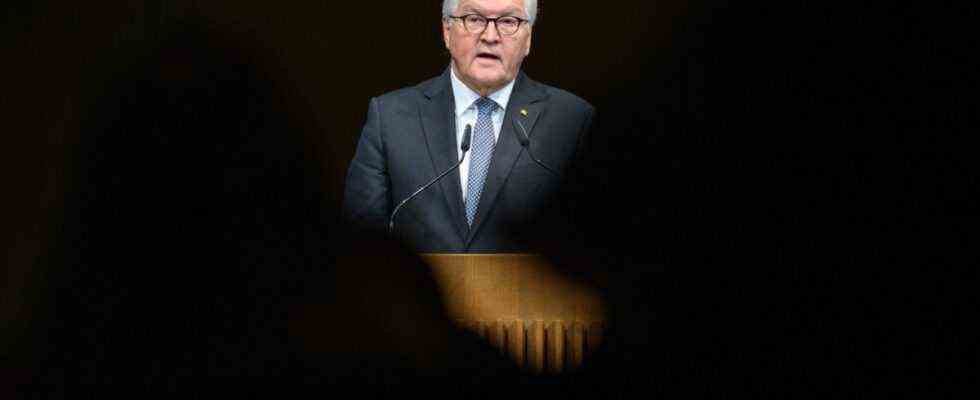This machine could decide whether you were allowed to go to Germany. Frank-Walter Steinmeier marveled at the old spirometer, a device for measuring lung volume, which is displayed in a glass case in the House of World Cultures in Berlin – along with health and vaccination certificates from former “guest workers”. Only those who were healthy in the chest were allowed to make the journey to the Federal Republic. There was a demand for workers back then, for the tough tasks. The Federal President will come back shortly in his speech on the 60th anniversary of the German-Turkish recruitment agreement, which will be celebrated here on Tuesday evening.
It was two thin sheets of paper that changed the lives of millions of people. The exchange of a short text between the Foreign Office and the Turkish Embassy sealed the recruitment process between the Federal Republic and Turkey in October 1961. At that time there was no photo of a firm handshake between politicians. And certainly not a ceremony. There were even no press releases from the authorities. Two pages of paper, that was all. “And yet this silent post should change our society as profoundly as few other events in the past sixty years,” says Steinmeier. Between 1961 and 1973, around 900,000 people from Turkey came to Germany initially to work. Today around 3 million people of Turkish origin live in Germany. And it wouldn’t be the whole story if one didn’t tell the problems of living together in these 60 years.
Frank-Walter Steinmeier is aware of this – and so he tries to give people of Turkish origin in Germany a self-critical hug at the ceremony. Self-critical because he mentions the omissions: that German society understood the guest workers as immigrants far too late. “As a result, a lot was left behind, and many problems only arose in this way.” Because people were measured according to their usefulness and sometimes subjected to degrading medical examinations, such as the lung test of the time. And because they were and are the target of racism and prejudice. But, and that’s the hug, the people of Turkish origin helped build Germany. “You have enriched our country, economically, but above all humanly.” For that he is “deeply grateful”.
Frank-Walter Steinmeier (l) and his wife Elke Büdenbender (2nd from left), together with the Federal Chairman of the Turkish Community in Germany, Atila Karabörklü (2nd from right), look at an old device for measuring lung volume, which is displayed in a glass case – including health and vaccination certificates of former “guest workers”.
(Photo: Bernd von Jutrczenka / dpa)
The Turkish Community in Germany (TGD), the largest secular association of people of Turkish origin, had invited to the ceremony. In his welcoming speech, TGD federal chairman Atila Karabörklü had previously given the adversities of life in Germany a lot of space – and gave the audience a crash course on the painful experiences that have their place in the collective memory of the German Turks. There are above all murders, as his co-chairman Gökay Sofuoğlu says, the murders of the right-wing extremist NSU and the victims in Hanau, in which the families felt left alone and ignored by the authorities. But there is also the then Chancellor Helmut Kohl, says Karabörklü, who was of the opinion that the Turks came from a different culture and could not be assimilated. This had the effect that “prejudices against people of Turkish origin became socially acceptable,” says Karabörklü. Immigrants were concentrated in individual districts, and the children were denied higher education. “What would you do? How would you feel?” But yes, there is also the other side: the opportunities in Germany, the help from neighbors – and gratitude for it.
Steinmeier takes up these injuries and he wants to be crystal clear. The hatred on the net is not just words, says Steinmeier. “Xenophobia is human hatred and we will never tolerate this hatred in Germany.”
Steinmeier counters violence and adversity with his leitmotif of coexistence, the offer of a “society of lived equal opportunities”. Many German Turks are successful, many of them German citizens. They are not people with a migration background, says Steinmeier. “But Germany has become a country with a migration background.” Many immigrants in Germany longed for “freedom, equality and solidarity,” he says. It is now up to everyone to make these “longings that we all have and that bind us” come true.
And addressed to people of Turkish origin in the hall and in the country, Steinmeier says: “Take the seat that is yours, take the seat in the middle of society, and fill it up, help shape this society because it is your company too! “

